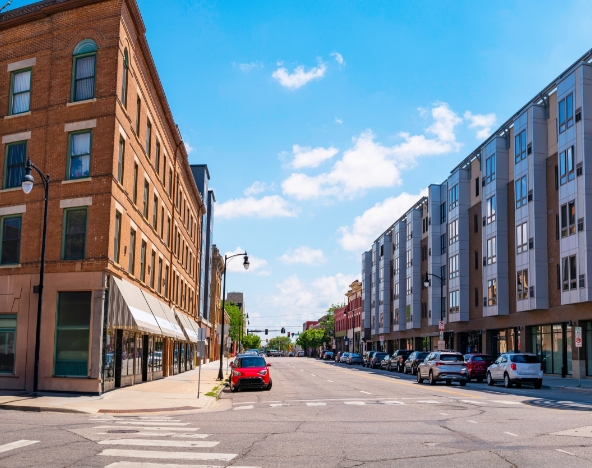Getting Started
At CATCH, one of our goals is to educate North Dakota residents about how and why legal immigration can work in rural places.
1. What is Legal Immigration?
Legal immigration is the process of individuals from other countries entering and residing in the United States through authorized channels.
2. Why Rural Towns in North Dakota?
Many rural towns in North Dakota face challenges like declining populations, labor shortages, and economic stagnation. Legal immigration provides a solution by bringing skilled workers, families, and entrepreneurs who can contribute to the local economy and enrich the community.
3. The Benefits It Brings
Legal immigrants help fill gaps in essential industries like agriculture, healthcare, and construction, all vital to North Dakota’s rural economy. They also stabalize population numbers, support local schools, and contribute to cultural diversity.
4. The Immigration Process
Newcomers go through background checks, provide proof of qualifying status, employment, or family connections, and meet other eligibility requirements to help ensure they can be integrated well into their new communities.

By educating community members, we bring understanding to legal immigration and the positive impact it has on our rural places.
They Need Us. We Need Them.
It happens through private sponsorship.

Private Sponsorship Resources
- CATCH: Vision, Core Values, and Mission
- What is Private Sponsorship?
- Sample Sponsorship Group Structure: Roles and Responsibilities
- Sponsorship Group Duties
- Sponsorship Group Application Process
- Becoming a CATCH Community
The private sponsorship program in the U.S. is called the Welcome Corps. It is a U.S.
Department of State program that allows American citizens and permanent residents to
voluntarily support refugees. Sponsors can provide refugees with the necessary assistance
to start a new life in the USA.
As a Private Sponsorship Organization of the Welcome Corps, CATCH empowers North Dakotans to make a difference by helping refugees resettle in rural communities.
Sponsoring Refugees Strengthening Communities
CATCH is a Private Sponsorship Organization of Welcome Corps

The Welcome Corps is a program of the U.S. Department of State, administered by a consortium led by the Community Sponsorship Hub with funding provided by the U.S. government. CATCH ND does not receive funding from the U.S. government for the Welcome Corps.